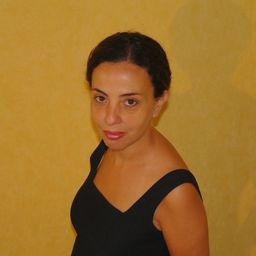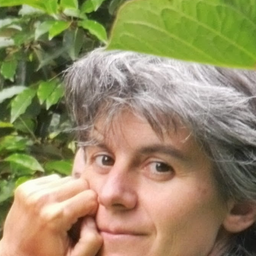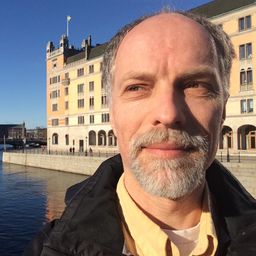Are Contemporary Processes of Migration Changing the Authorised Heritage Discourse?
Theme:
Heritage Changes the Local Societies
Tags:
Heritage changes the local societiesheritage and mobilityPost-colonial heritageGlobal vs local
What:
Regular session
When:
9:00, Monday 6 Jun 2016
(6 hours)
Where:
How:
There are many different kinds of migrants in the contemporary world. They include the familiar figures of refugees or undocumented migrants, associated with and suffering from exclusionary practices, poverty, silencing or repressions; skilled migrants with economic resources but lacking the tools for cultural and social integration; migrants or second generation migrants returning to their homelands and becoming "strangers" there; people moving to several countries as global nomads, etc. An increasing number of people are thus living “transit lives,” between different cultures.
In the past decades museums and heritage places all over the world have begun to adapt to this challenging situation. From enlightened and exclusive institutions, promoting one version of the past and national identity, museums have had to transform themselves to remain relevant in our fast changing and diverse world. Equally, some countries are increasingly identifying and protecting heritage places, routes or landscapes that are significant to people affected by mobility such as migrants/diaspora, ex-colony citizens, modern and contemporary slaves, etc. These changes include giving greater access to collections and exhibition spaces, promoting multi-vocality in the interpretation of collections, encouraging migrants’ involvement in exhibitions through co-curation, or developing participatory methodologies among local and/or excluded communities for the definition of the significance of heritage places.
This session invites papers that discuss, analyze and evaluate approaches, methodologies and the impact of programmes of museums and heritage places involving people in cultural transitions (including migrants, refugees, cross-cultural people). Basically, we are interested in investigating what happens to heritage when people’s identities are in transition due to mobility. Issues which the session will explore include:
• Specific museum programmes developed for migrant communities, such as language learning programmes, well-being sessions, employment schemes for migrants, etc.
• Migrants’ critical views of museum’s programmes and collections.
• Definition of new heritage places and museums from a migrant perspective and approach (i.e. multi-vocality and participatory policies).
• Redefining the diverse significance and uses of mainstream heritage places in the context of globalized, dynamic and fluid cultures (i.e., the heritage of emotions applied to migration).
In the past decades museums and heritage places all over the world have begun to adapt to this challenging situation. From enlightened and exclusive institutions, promoting one version of the past and national identity, museums have had to transform themselves to remain relevant in our fast changing and diverse world. Equally, some countries are increasingly identifying and protecting heritage places, routes or landscapes that are significant to people affected by mobility such as migrants/diaspora, ex-colony citizens, modern and contemporary slaves, etc. These changes include giving greater access to collections and exhibition spaces, promoting multi-vocality in the interpretation of collections, encouraging migrants’ involvement in exhibitions through co-curation, or developing participatory methodologies among local and/or excluded communities for the definition of the significance of heritage places.
This session invites papers that discuss, analyze and evaluate approaches, methodologies and the impact of programmes of museums and heritage places involving people in cultural transitions (including migrants, refugees, cross-cultural people). Basically, we are interested in investigating what happens to heritage when people’s identities are in transition due to mobility. Issues which the session will explore include:
• Specific museum programmes developed for migrant communities, such as language learning programmes, well-being sessions, employment schemes for migrants, etc.
• Migrants’ critical views of museum’s programmes and collections.
• Definition of new heritage places and museums from a migrant perspective and approach (i.e. multi-vocality and participatory policies).
• Redefining the diverse significance and uses of mainstream heritage places in the context of globalized, dynamic and fluid cultures (i.e., the heritage of emotions applied to migration).
Sub Sessions
- 09.30 In Public Displays We Trust: Universal Museums and Immigrants
- Participant Andreas Pantazatos (Durham University)
- 30 minutes | 9:00 AM - 9:30 AM Part of: Are Contemporary Processes of Migration Changing the Authorised Heritage Discourse?
- Paper
- 14.00 The Museum of Immigration and Diversity at 19 Princelet Street in Spitalfields: Multi-Vocality in the Interpretation of the Migration Experience and Heritage
- Participant Andrea Delaplace (Université Paris 1 Panthéon-Sorbonne)
- 30 minutes | 9:00 AM - 9:30 AM Part of: Are Contemporary Processes of Migration Changing the Authorised Heritage Discourse?
- Paper
- 09.00 "Like Satires of Creation, We Move North, Gazing at Europe and Brazing the Dazzling Sahara Sun": Diasporic Imagination and Heritage in the Era of Mass Migration
- Participant Dr Anna Catalani (University of Lincoln)
- 30 minutes | 9:00 AM - 9:30 AM Part of: Are Contemporary Processes of Migration Changing the Authorised Heritage Discourse?
- Paper
- 13.30 Globalization, Migration and the Heritage of Cross-Cultural People
- Participant Laia Colomer (Linnaeus University (Sweden))
- 30 minutes | 9:00 AM - 9:30 AM Part of: Are Contemporary Processes of Migration Changing the Authorised Heritage Discourse?
- Paper
- 10.00 The Challenges of Somali Cultural Heritage for the Dominant Heritage Discourse in Sweden
- Participant Laia Colomer (Linnaeus University (Sweden)) Participant Cornelius Holtorf (Linnaeus University) |
- 30 minutes | 9:00 AM - 9:30 AM Part of: Are Contemporary Processes of Migration Changing the Authorised Heritage Discourse?
- Paper
- 11.30 Museums, Immigrants and Social Justice: Addressing Issues of Language Barriers and Employment
- Participant Dr Sophia Labadi (University of Kent)
- 30 minutes | 9:00 AM - 9:30 AM Part of: Are Contemporary Processes of Migration Changing the Authorised Heritage Discourse?
- Paper
- 11.00 Defining Welshness through the Transnational Heritage Network
- Participant Kimberly Berg (State University of New York at Albany)
- 30 minutes | 9:00 AM - 9:30 AM Part of: Are Contemporary Processes of Migration Changing the Authorised Heritage Discourse?
- Paper


